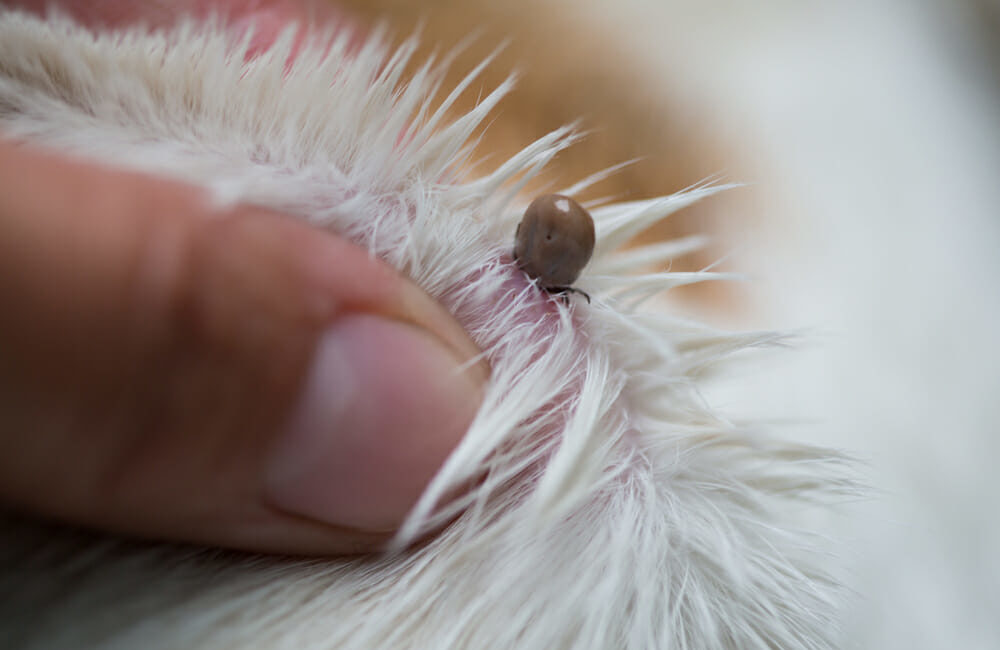Ahh spring, when all the living things come out of winter hibernation and flourish. As much as we love spring, we don’t love the parasites that come with it. And although fleas are a year-round problem, many small animals become more active in the spring which helps the fleas travel around a little more. Ticks like to come crawling around if it’s 4+ degrees outside and have a spring and fall “bloom.” With all that said, I’m here to give you the low down on these pesky parasites!
Fleas
- Dogs and cats are prime hosts for fleas
- Fleas feed on the hosts’ blood, and their saliva can cause your pet the bite or scratch, causing self-trauma and skin infection
- The flea eggs hatch, go through a few life-stages on the ground, become adults and jump on your pet as they walk by
- There are a variety of products available at your veterinarian to control and prevent flea infestations
- It is important to treat consistently for at least three months to break the flea lifecycle on your pet and in your home
- A pet ingesting a flea can become infected with tapeworm, so it’s important to treat for internal parasites regularly as well
- Fleas lay hundreds of eggs a day that fall off your pet on into your home, so it’s important to vacuum daily and wash all pets bedding
- Flea premise sprays are also an option for a home infestation
Ticks
- It only needs to be 4 degrees C for ticks to be active
- Ticks are mostly found in wooded and/or long, grassy areas
- Ticks do not jump, they wait on top of a plant (e.g. blade of grass) and grab onto your pet as they brush against the plant
- The tick will then walk around on your pet and find a dark, cozy spot to attach and start feeding on blood
- Tick bites cannot be felt by you or your pet
- Ticks carry many diseases, including Lyme disease that can transfer to your pet
- There are multiple tick prevention products available at your veterinarian
- Homemade topical sprays and pet store products will not work and can be potentially harmful to your pet
Your veterinarian will be able to recommend a flea/tick product that best suits your pets’ lifestyle.
Happy Spring!
Written by: Kelly, RVT




